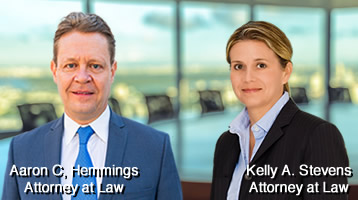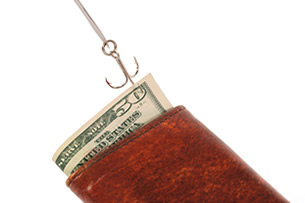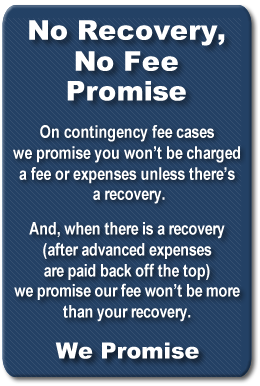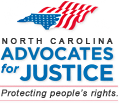Raleigh North Carolina Investment Fraud Lawyers
Investment Fraud
Investment products can appear so complicated that the investor places his or her complete trust in an investment professional. Investment fraud occurs in multiple ways and may not be apparent to the unsuspecting investor. Basic investment fraud occurs when an investor does not understand certain important facts of the investment due to inaccurate disclosure or those material facts have not been disclosed at all, creating a situation where if the investor had known about these facts he or she would not have agreed to the investment.
Investment fraud can take many different forms, however, there are several which year after year remain common.
Common Types of Investment Fraud
Ponzi Schemes
Named after 1920’s fraudster, Charles Ponzi, the scheme involves the false promise of investing funds while simply holding the money and paying back existing investors with funds collected from new investors. Ponzi schemes are doomed to collapse if the perpetrator cannot find new investors to pay the returns to the previous investors. Many operate for only several years, while some may operate for decades leaving lives and families destroyed.
Likely the most widely known Ponzi scheme was committed by Bernie Madoff. Discovered in 2008, the scheme had been in operation for over 20 years and involved over $50 billion. As was the reality with the Madoff case, Ponzi schemes are often operated by a Stock Broker or Financial Adviser .
Promissory Notes
A promissory note is the receipt of funds by one party and a written promise to repay a specified sum of money at a stated time in the future. Promissory notes typically pay interest at the time of maturity. Companies sometimes may sell promissory notes to raise capital for expansion or other business ventures and usually offer them only to sophisticated investors. But not all promissory notes are sold in this way.
Promissory notes are also offered to everyday retail investors. Most promissory notes sold to the public must be sold by registered securities salespeople who have a securities license or registration from their state securities agency.
Unfortunately, promissory notes are often used by people committing financial fraud in relation to a Ponzi scheme or real estate fraud. If you’re offered a promissory note investment for a short term and high return, you should be careful. If the investment sounds too good to be true, it probably is.
Real Estate Investments
The promise of earning fast, easy money through real estate investments continues to lure investors. Real estate investments are also often used in Ponzi schemes . Like offers of promissory notes, real estate investments that are recommended by people claiming to have doubled or tripled their income should be closely investigated. It is recommended that you do your homework on any real estate investment. Ensure you receive proper documentation and understand the ownership of the property.
Securities Fraud
If you’ve suffered unexpected or unexplained losses with your securities investments and suspect that it may be due to fraud or misconduct on the part of your broker, brokerage firm or investment advisor, you may be able to file a claim to recover your damages. A knowledgeable securities lawyer can help you in determining whether you have a valid securities dispute and what type of claim you should file and where you should file. Typical forms of securities fraud include:
-
Misrepresentation
-
Churning an account
-
Failure to disclose investment risks
-
Promise of unrealistic returns
-
Failure to disclose material facts
-
Concentration in one stock or industry
-
Using investment gains for undisclosed purposes
-
Unsuitable investments
If you have questions about whether you have been a victim of investment fraud, contact the North Carolina investment fraud lawyers at the law firm of Hemmings & Stevens, PLLC today. We offer free initial consultations and work on a contingent fee basis, which means there are no fees unless we make a recovery for you. You can call us at 919.277.0161 or contact us online. Our office is in Raleigh, but we handle investment fraud cases statewide.











